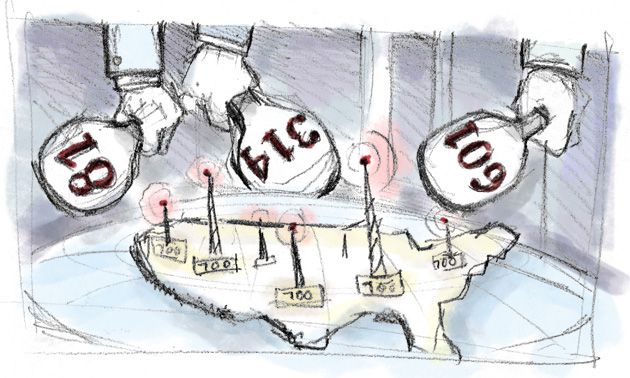House Republicans side with AT&T and Verizon, calling for unrestricted spectrum auctions
The biggest spectrum auction of the past 10 years is due to take place in the next year, and as we’re all aware, both Sprint and T-Mobile have called for changes in the way airwaves are being auctioned off. As the current system stands, big chunks of spectrum are sold covering large geographical areas. T-Mo and Old Yeller have joined with other organizations to lobby that the FCC changes the restrictions to sell spectrum in smaller portions, covering smaller areas.
T-Mobile argues that it helps the smaller carriers be more competitive at auction. Stating that the current system makes it too easy for Verizon and AT&T to take the lion’s share of spectrum. Tom Wheeler, chairman of the FCC, has agreed and has motioned for changes to be made that make it hard for carriers/companies with large portions of specific bands to acquire too much more. The FCC’s proposed changes specifically reserve sections of spectrum in each market for wireless carriers who don’t already have large quantities of low-frequency spectrum. A move which both VZW and the Death Star are unhappy with, and one which would benefit Sprint and T-Mobile greatly.
And they’re seemingly not the only ones. Republicans on the U.S. House of Representatives’ technology panel have asked regulators to cancel their plans to restrict auctions. The news comes ten days prior to the date set for the FCC vote for next year’s major auction.
In a letter dated May 2nd, the House Republicans compare these restrictive measures to those of a cartel, stating that this “… is not how a market-based auction should function; it is how a cartel controls price.” They believe that the free market should decide the fate of the auctions.
We have 10 days until the fate of the major auction is decided, and there’s a lot of lobbying to do between now and then. And that’s not the only potential stumbling block. Television stations still need to voluntarily give up control of their low-frequency airwaves.
Source: Yahoo! Finance

